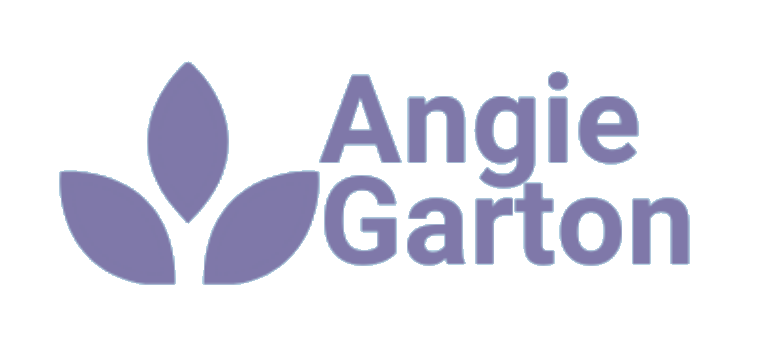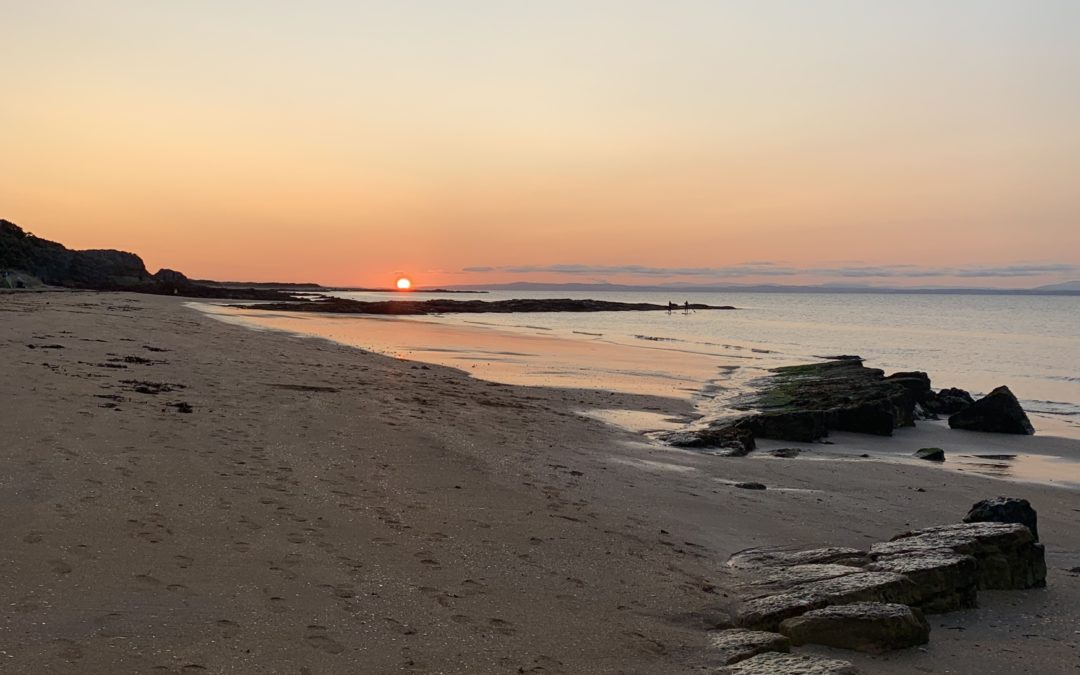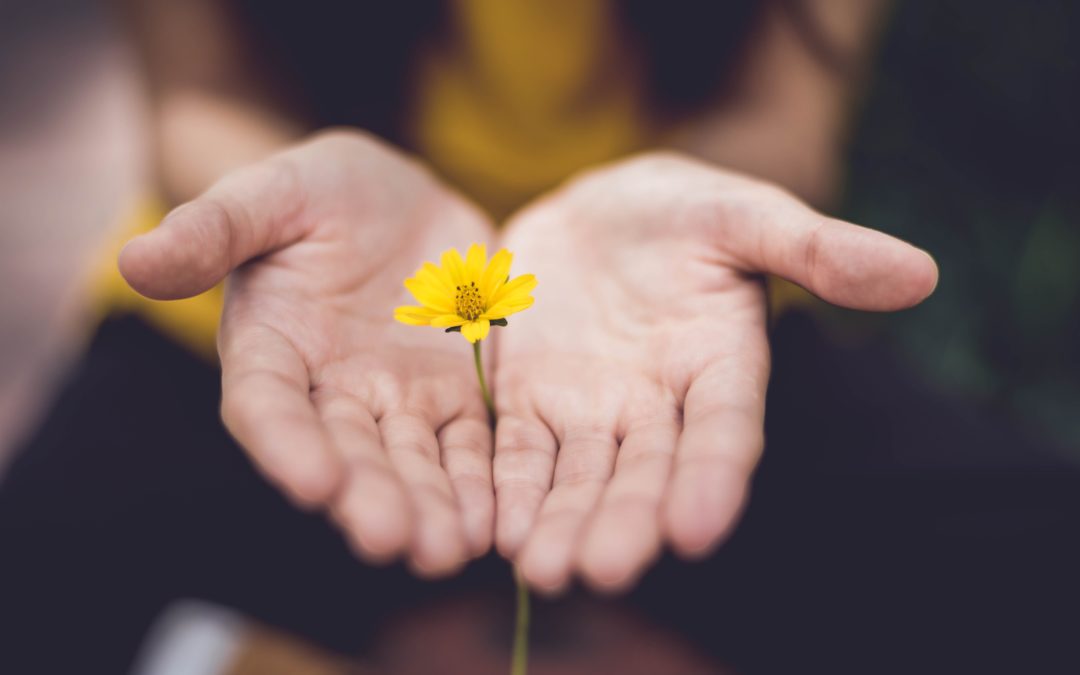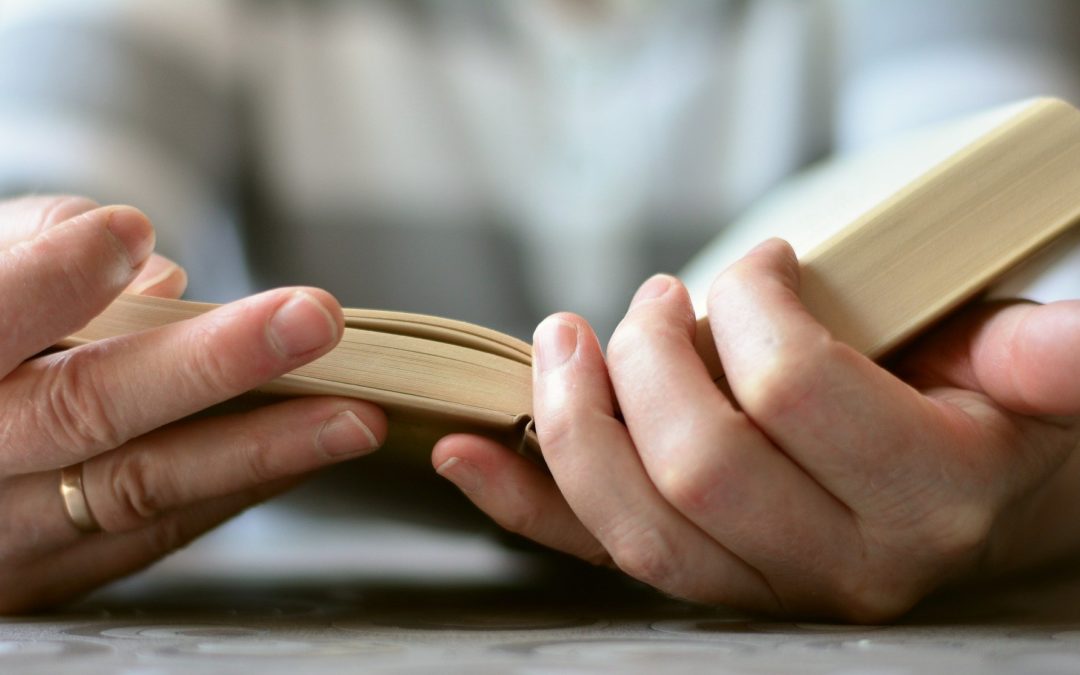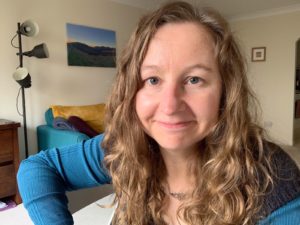Helpful Herbs for Menopause
Angie Garton (April 2021)

We’ve got very used to ‘doing’ health in the same way, along the lines of… you detect something isn’t quite right, you look for how to alleviate the problem.It’s the accepted way, to use a specific treatment for an ailment or problem.
For example; you feel pain, so you take painkillers. Or you cut your finger, so you put a plaster on it.
The problem or the pain is what you’re both feeling AND treating, and often in a very direct way.
Menopause though, doesn’t quite play by the same rules.
The hormonal changes of menopause can bring discomfort, irritation, aches and pains in lots of ways, which I’ve talked about previously in other blog posts, in emails and in my online community.
But if you try to use that same principle to treat menopause symptoms, the way you’ve dealt with so many other sources of discomfort throughout your life, you may well find that you’re still trying to find the solution to it, many months on.
The problems of menopause, whether they are physical (e.g. disrupted sleep, low energy, dry skin) or mental (e.g. anxiety, brain fog, anger etc.) or both; cannot be entirely solved unless we go beyond the symptoms themselves.
Menopause symptoms are exactly that – they point towards a problem. And to really alleviate the issue, you’ll need to look further than the declining levels of sex steroid hormones.
If you only treat the symptom e.g you look for something to improve your mood or your discomfort at a superficial level, you’ll also get temporary results.
Before we get on to discuss some helpful herbs for menopause, I want to be clear on what the purpose of it is….
to support what you’re already doing (or perhaps need to do). No judgement from me at all, we’ve all got things we need to work on, me included.
Herbs are extremely powerful, but without three key building blocks in place first, they’re unlikely to produce the effect you’re really looking for.
What are the three building blocks?
These underpin every single piece of my advice, whether you read my blogs, join my free community, read my emails or become a client.
It’s not something whimsical, this is science-based health advice for any woman over the age of 35 years (when hormones begin to prepare for this phase of your life).
Three essential elements for hormonal balance:
- Liver health
- Adrenal gland health
- Blood sugar regulation
What does this even mean?
In a nutshell, it means supporting the body systems which have the strongest effect on what the hormones are doing.You can wait for my next blog post for me to explain that – or you could have a private consultation where I’ll not only help you understand it but also help you to implement it for maximum effect. Just get in touch if you’d like to speed up the process.
When you’re taking these three things into account on a daily basis, your symptoms will reduce AND any herbs or supplements you do take are more likely to work.
What are ‘Helpful Herbs’?
These are plants which provide a supportive effect in the body. Remember, we’re not looking for something to treat the ailment directly. It’s more about supporting body systems which themselves regulate the presence / absence / severity of the symptoms.
You’d be forgiven for thinking I’m going to list out herbs with weird sounding names from far-away countries (and an expensive label to match). But no, we’ll not start there. Because some of the really useful herbs are just ordinary plants, containing very useful compounds. Below are a few that you may have overlooked or may have misunderstood. Of course, this is not an exhaustive list.

Garlic, Parsley, Coriander.
They might not sound particularly special, but I really do encourage my clients to eat these.
Let’s start with garlic.
Part of the ‘alium’ family, garlic has a long and well-known history as a medicinal plant, due to anti-bacterial and anti-fungal properties. Plus, the promotion of healthy cholesterol levels (absolutely crucial for any woman over 40 years), and assisting with cardiovascular health – due to promoting blood flow and lowering blood pressure.
Parsley and coriander – when used as fresh herbs – can be helpful in providing a tasty dose of anti-inflammatory compounds (inflammation increases as part of menopause), alongside the all important fibre.
Both of which are crucial for liver health. They also provide energy-boosting B vitamins and heart healthy compounds to aid with cholesterol function (hormones are formed out of cholesterol).

Sage (Salvia officinalis) is another anti-oxidant and anti-inflammatory herb, with extra benefits for assisting with blood sugar regulation and improving cognitive health. This makes it a popular choice for alleviating hot flushes and memory.
It’s definitely useful, but once again, taking this herb won’t override a bowl of granola or half a packet of hobnobs (sugar will exacerbate all menopause symptoms).

Cleavers (Galium aparine) are those sticky leaves and tendrils that we used to tease each other with as children. Or maybe still, as adults.
Apart from the comical stickiness of the plant, when used as a tincture it also has exceptional properties to aid with the lymphatic system and the kidneys. This herb is useful (as a cold tea) if you feel that menopause has increased your internal thermostat to a somewhat uncomfortable temperature. Not just for hot flushes, but general internal heat.
Nettle (Urtica dioica) has been used for centuries as pain relief and an anti-inflammatory and there are some potential benefits for managing blood sugar and blood pressure, too. Research has focused mainly on using this plant to steep fresh leaves, as nettle tea.
As always, it would be best to consult with a herbalist before using yourself as a garden experiment.
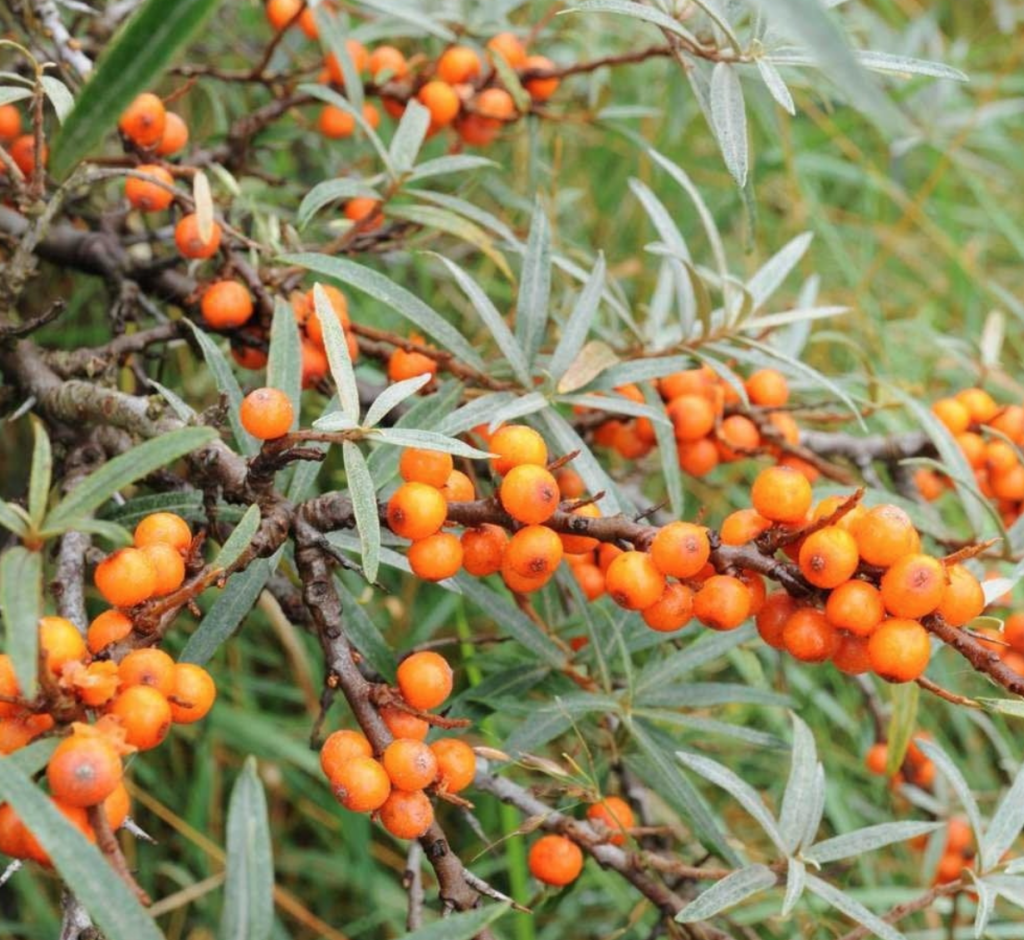
Seabuckthorn (Hippophae rhamnoides) is a familiar sight to me at my beachside home, on the East coast of Scotland. This shrub is common throughout Europe, too.
I’ve included it here because of it’s high vitamin C content, one of the highest plant sources known to woman!
Used as a juice or a tea, the berries are a great source of carotenoids, vit E and K, which provide powerful anti-oxidants and some cardiovascular benefits too.
The presence of omega 7 also warrants a mention here, as one of the less-well known omegas with a beneficial role in helping to support moisture levels in the body. Vaginal dryness? Dry eyes? Seabuckthorn could well help.
Adaptogenic herbs are a broad class of herbs which have a supportive effect for the adrenal system, to help regulate stress hormones including cortisol.
They have a direct effect on the pituitary, hypothalamus and adrenal glands – to require less ‘work’ from the adrenals to produce the same effect in the body.
The result is a feeling of reduced fatigue, stress and improved stamina, but as mentioned earlier, only when other practical actions are being taken in parallel.
Remember, none of these herbs are miracle workers, you’ll still need to ‘address’ the issues at the core of your symptoms.
I wouldn’t want to rely on using adaptogens on a permanent basis, but there certainly have been times when I’ve used carefully selected herbs. I find them most useful when I have both physical and emotional stress e.g. managing an illness or depression, and also dealing with stressful situations. Or, when I’m in need of a helping hand for focusing at work or coping with fatigue.
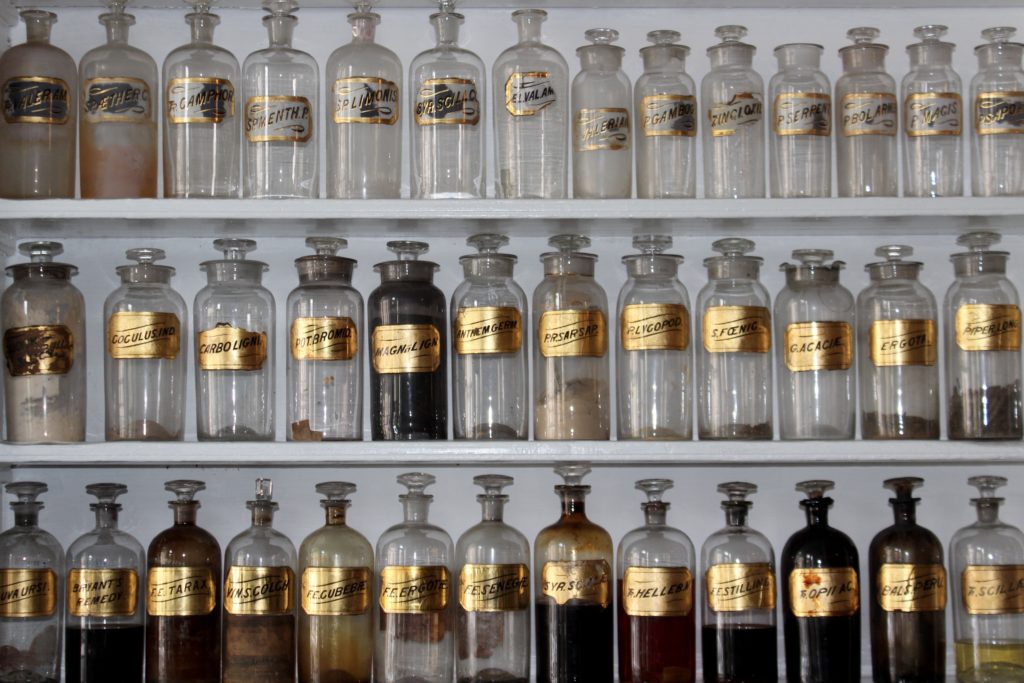
Ashwagandha (Withania somnifera) is commonly used as a tea or a capsule. It has a calming action on the body, and can be quite soporific.
Siberian ginseng (Eleutherococcus senticosus) is another common one. It is doing a similar job to the Ashwagandha – to support the adrenal glands – but some women find it quite energising.
Maca root (Lepidium meyenii) is a Peruvian herb originally given as an aphrodisiac, so be warned this one can be strong! This one is not recommended if you have clinical or sub clinical thyroid issues.
Not all so-called ‘menopause herbs’ will be helpful for all women.
There are many other herbs we could talk about (e.g. Chaste tree berry / Vitex agnus-castus, black cohosh) but these are definitely best prescribed on a ‘case by case’ basis, rather than a ‘good for all’.
There are important contraindications to consider, especially when prescribed medications are also being taken, as is often the case.
Plus, not all herbs will provide the same effect in all women. It’s dependent upon your own unique internal environment, not just the key foundations for hormonal balance as discussed further up the page.
For example, Chaste tree berry is often used in the hope that it will regulate menstrual cycles by stimulating the ovaries to produce oestrogen and progesterone. But if there are no follicles on the ovaries left to stimulate, this is a bit like pressing the doorbell when nobody’s actually at home. Pointless, and frustrating.
The main message here is – consult a medical herbalist before self-prescribing your own herbs.
Medical Disclaimer
Please note: Do not use these herbs without first consulting a medical practitioner particularly if you are on medication for blood pressure, blood thinners, have sub-clinical or clinical diagnoses, if pregnant or breast-feeding. If these herbs are new to you, please try a small amount due to the risk of allergic reactions.
Need extra support, to understand how to alleviate menopause symptoms?
Get in touch using the email address below:
angie@bodyevolutionformula.com
